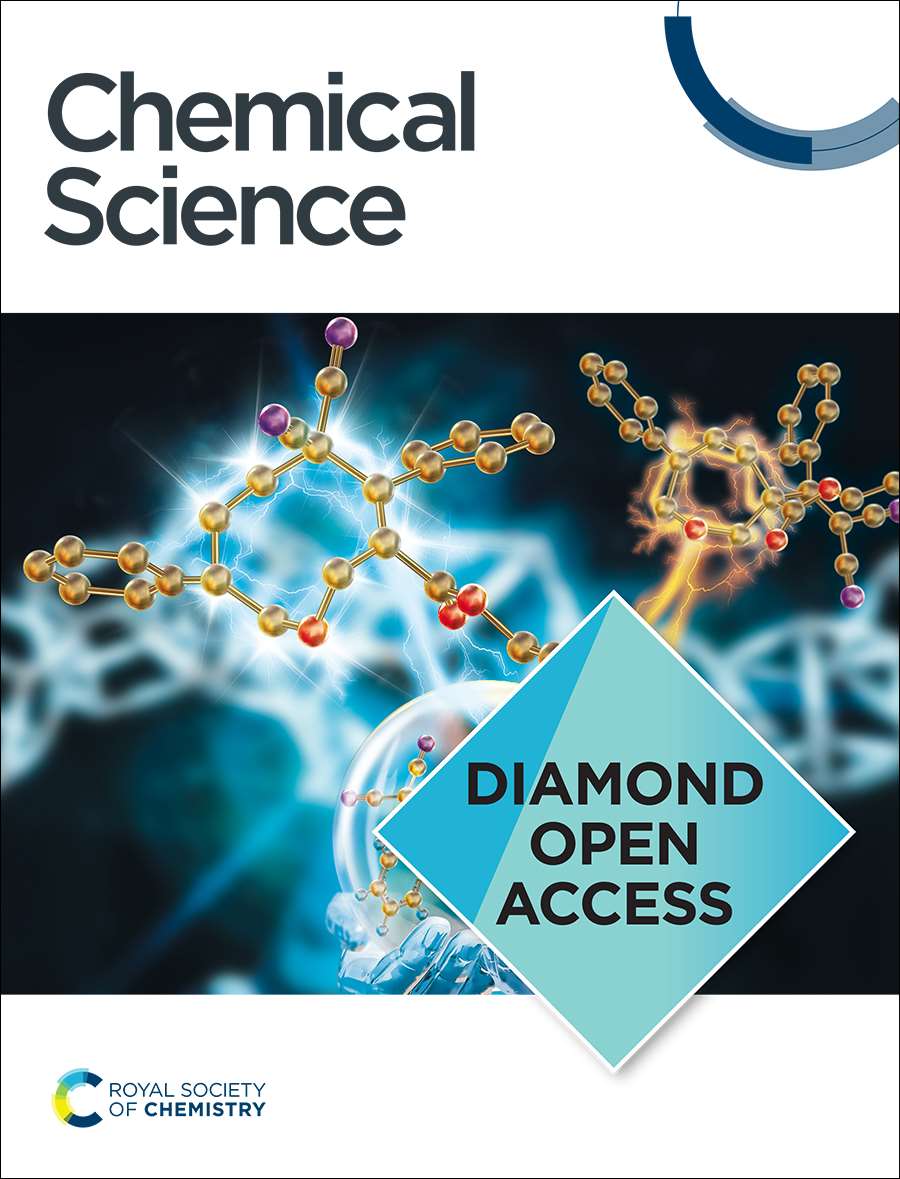Entanglement of Spin Transition and Structural Adaptability: Manipulating the Slow Spin Equilibrium by Guest-Mediated Fine-Tuning Elastic Frustration
IF 7.4
1区 化学
Q1 CHEMISTRY, MULTIDISCIPLINARY
引用次数: 0
Abstract
A comprehensive analysis of the physical and chemical properties using the same family of complexes is crucial for understanding and designing structure-property relationships. However, finding the appropriate system remains challenging. Here, a series of guest-saturated states based on the 2D Hofmann-type framework [FeII(prentrz)2PdII(CN)4]·guest (prentrz = (1E,2E)-3-phenyl-N-(4H-1,2,4-triazol-4-yl)prop-2-en-1-imine, 1·guest) is reported, which exhibit a guest-manipulated slow dynamic effect of spin equilibrium in an incomplete two-step spin-crossover (SCO) process. Using a full-sealed method by modulating the mixing ratios and types of CH3OH, H2O, and D2O, stable maintenance of guest-saturated states allows fine-tuning elastic frustration (ξ) of the framework to realize SCO behaviors in the unexplored region between one-step incomplete (HS0.5LS0.5↔HS) and two-step complete (LS↔HS0.5LS0.5↔HS) processes. A semi-sealed method enables continuous guest molecule loss until the guest-saturated state disappears, transitioning slow spin equilibrium from difficult to overcome to overcome fully. The study demonstrates that guest molecule modulation is more controllable than structural deformation effects on elastic frustration, offering a pathway to discover hidden types of SCO materials and develop new stimulus-responsive materials.自旋跃迁的纠缠与结构适应性:用客介导的微调弹性挫折操纵慢自旋平衡
使用同一类配合物对物理和化学性质进行全面分析对于理解和设计结构-性质关系至关重要。然而,找到合适的系统仍然具有挑战性。本文报道了一系列基于二维hofmann型框架[FeII(prentrz)2PdII(CN)4]·guest (prentrz = (1E,2E)-3-苯基- n- (4h -1,2,4-三唑-4-基)prop-2-en-1-亚胺,1·guest)的客体饱和态,它们在不完全两步自旋交叉(SCO)过程中表现出客体操纵的自旋平衡缓慢动态效应。通过调节CH3OH、H2O和D2O的混合比例和类型,使用全密封方法,稳定地维护客户饱和状态允许对框架的弹性挫折(ξ)进行微调,以实现一步不完全(HS0.5LS0.5↔HS)和两步完全(LS↔HS0.5LS0.5↔HS)过程之间未探索区域中的SCO行为。一种半密封的方法可以使客体分子连续损失,直到客体饱和状态消失,将缓慢的自旋平衡从难以克服转变为完全克服。该研究表明,客体分子调制比结构变形对弹性挫折的影响更可控,为发现SCO材料的隐藏类型和开发新的刺激响应材料提供了途径。
本文章由计算机程序翻译,如有差异,请以英文原文为准。
求助全文
约1分钟内获得全文
求助全文
来源期刊

Chemical Science
CHEMISTRY, MULTIDISCIPLINARY-
CiteScore
14.40
自引率
4.80%
发文量
1352
审稿时长
2.1 months
期刊介绍:
Chemical Science is a journal that encompasses various disciplines within the chemical sciences. Its scope includes publishing ground-breaking research with significant implications for its respective field, as well as appealing to a wider audience in related areas. To be considered for publication, articles must showcase innovative and original advances in their field of study and be presented in a manner that is understandable to scientists from diverse backgrounds. However, the journal generally does not publish highly specialized research.
 求助内容:
求助内容: 应助结果提醒方式:
应助结果提醒方式:


